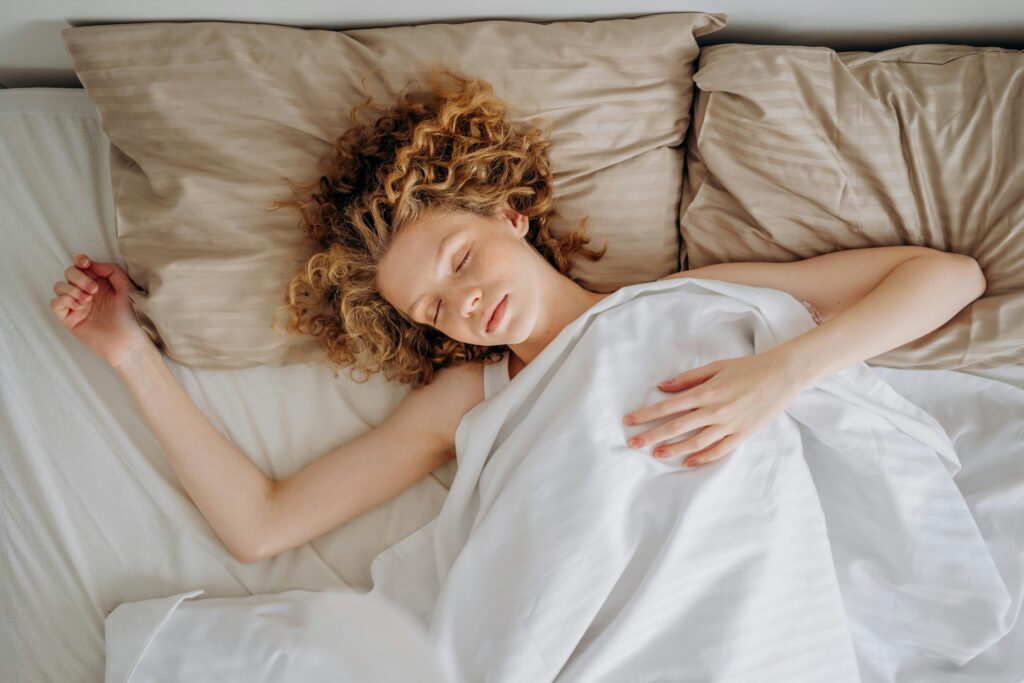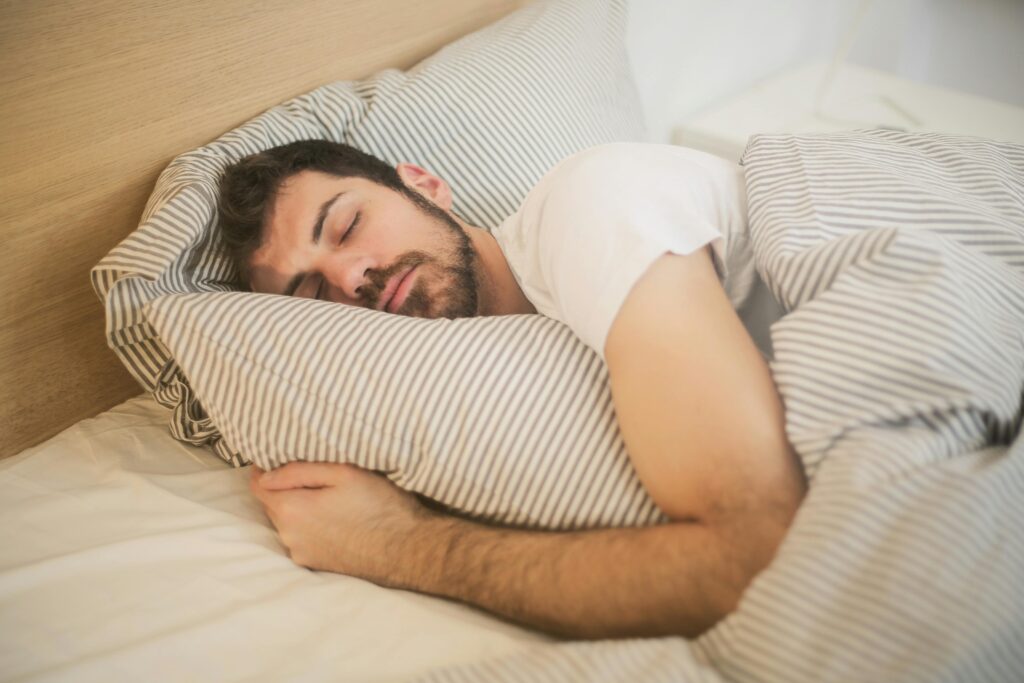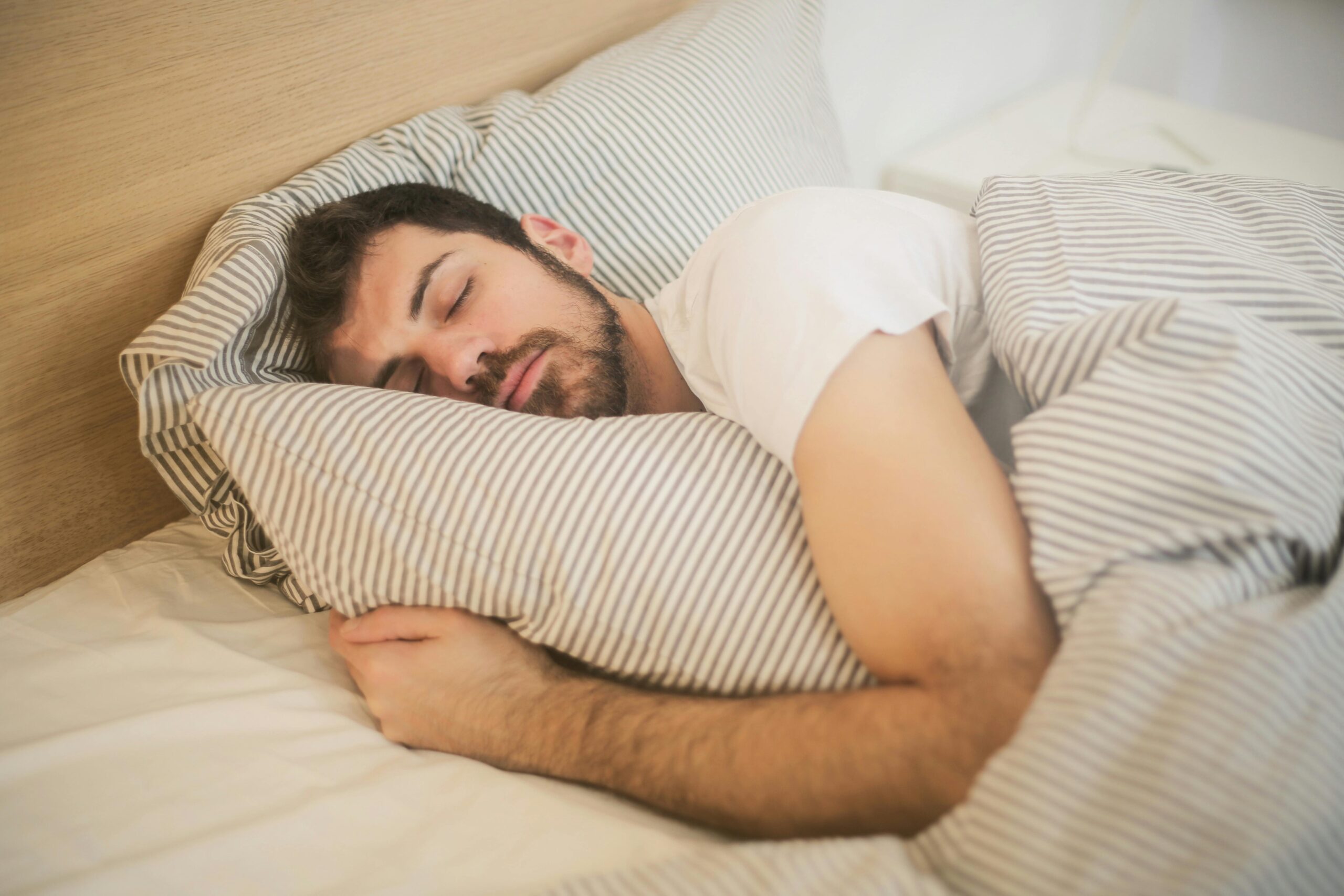Introduction
Why sleep is essential for mental, physical, and emotional health. How poor sleep impacts energy, mood, focus, and even weight.

1. Stick to a Consistent Sleep Schedule
Same bedtime and wake-up time every day — even weekends.
2. Create a Bedtime Ritual
Wind down with relaxing activities — like reading, meditation, or listening to soft music.
3. Avoid Caffeine and Alcohol Before Bed
Both disrupt your natural sleep cycle. Stop caffeine intake 6–8 hours before sleep.
4. Limit Screen Time
Avoid blue light from phones/laptops 1 hour before sleep. Use blue light filters or night mode if needed.
5. Make Your Bedroom a Sleep Sanctuary
Cool, dark, quiet, and comfortable. Use blackout curtains, white noise machines, or essential oil diffusers.
6. Try Aromatherapy
Scents like lavender, chamomile, or sandalwood can promote calmness and sleepiness.
7. Practice Relaxation Techniques
Deep breathing, progressive muscle relaxation, or guided meditation.
8. Don’t Nap Too Long During the Day
Limit naps to 20–30 minutes and avoid late-afternoon naps.
9. Exercise Regularly
Daily physical activity improves sleep — but avoid intense workouts late in the evening.
10. Avoid Heavy Meals at Night
Spicy or heavy food can disrupt digestion and affect sleep quality.
11. Get Morning Sunlight
Expose yourself to natural light in the morning to reset your circadian rhythm.
12. Keep a Sleep Diary
Track patterns, sleep quality, and identify what improves or worsens your sleep.
13. Remove Distractions
Turn off notifications, remove digital clocks, and create a no-phone zone near your bed.
14. Drink Herbal Teas
Chamomile, valerian root, lemon balm — all help calm your nervous system.
15. Try Natural Supplements (Caution!)
Melatonin, magnesium, or CBD (consult your doctor before use).
16. Manage Stress
Journaling, therapy, or light yoga can reduce overthinking and stress before bed.
17. Keep Your Room Cool
Ideal temperature for sleep: 60–67°F (15–19°C).
18. Wear Comfortable Sleepwear
Loose, breathable fabrics help your body relax.
19. Avoid Watching the Clock
Clock-watching increases anxiety. Turn your clock away from view.
20. Be Patient and Consistent
Sleep improvement takes time. Stick with your habits for long-term results.
Final Thoughts

Sleep isn’t a luxury — it’s a necessity. By making small, intentional changes to your habits and environment, you can enjoy deeper, more restorative sleep without medications.
Better sleep = better life.






